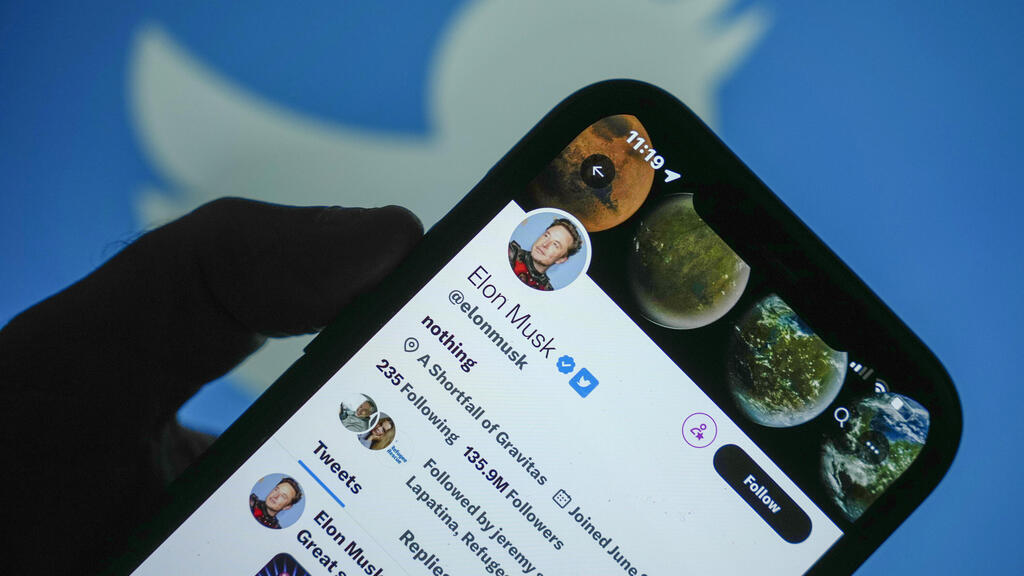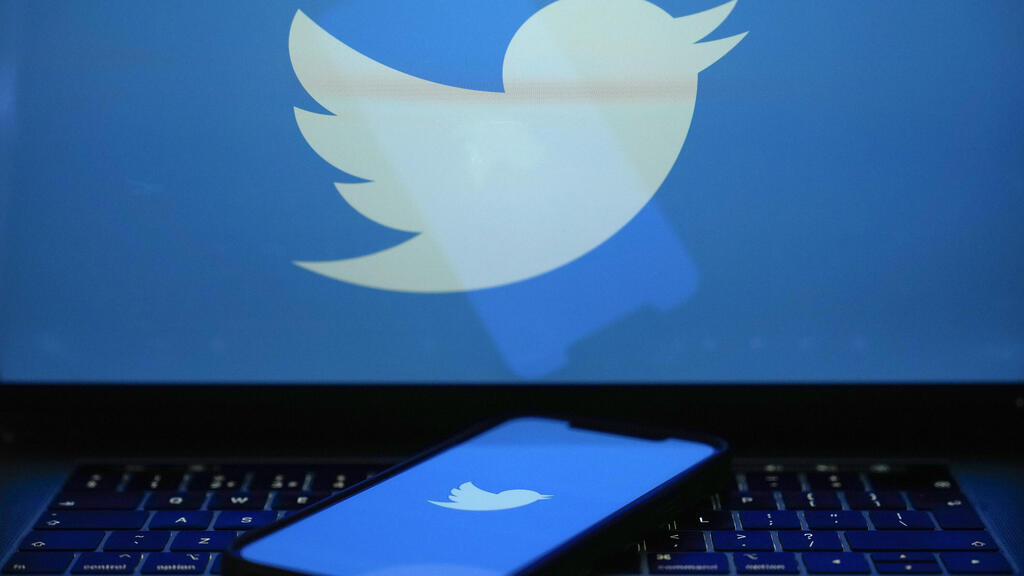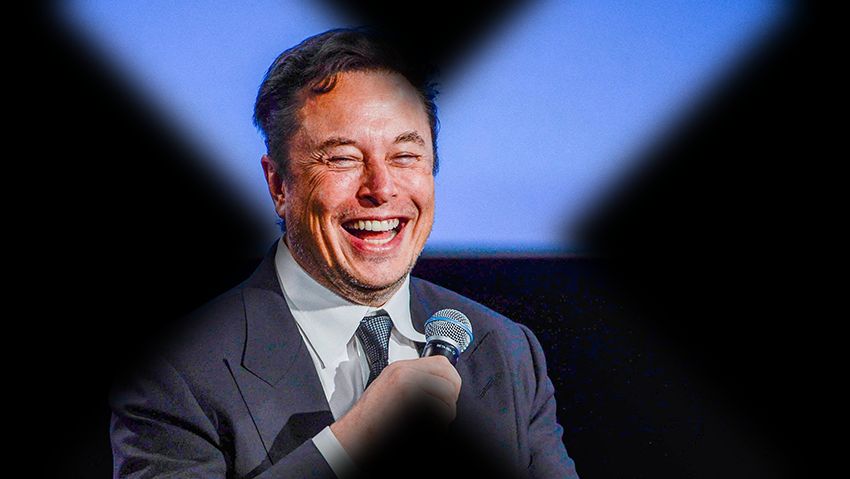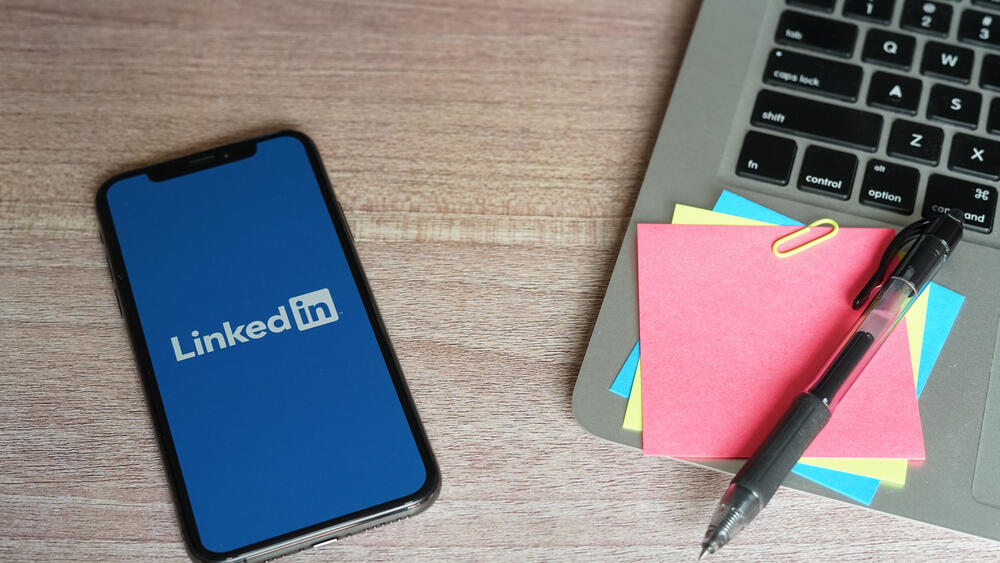Getting your Trinity Audio player ready...
You probably already know this, but Elon Musk made headlines recently for charging Twitter users, money to display blue ticks on their profiles, thus essentially declaring that anyone can verify themselves and do away with 3rd party verification.
Read More:
He fired an army of employees who were responsible for, along with policing content, deciding which special humans were important enough to sport the coveted blue tick [checkmark]next to their names.
Musk’s new plan was simple. Just pay a few shekels, and your profile is indistinguishable from your favorite celebrities. At least in theory anyway, and only if you don’t notice the discrepancy in the amount followers between your profile and the A-listers.
Tweeting out his intentions for blue-tick reform, the Twittersphere promptly erupted with memes and outrage along with excited enquires from asking when they can grab the icon. Passionate arguments also broke out between total strangers, strangers and famous people, famous people and other celebs, social elites and businesspeople and of course between influencers and the rest combined. Influencers, of course, feel most under threat having invested a mini lifetime building their following, working every hour of the day to earn their blue tick status, a badge of honor, pride and undiluted ego. Hollywood actors and models, so used to preferential treatment bestowed upon them by society, now found themselves in the same boat as you and I stripped of freebies and forced to fork out real cash to feel good about ourselves. The outrage was immense. Vintage Twitter.
Some users, we all know the kind, were just pleased with what they saw as a victory against the system [or machine, or Matrix]. On the other side, some seasoned conformists were going as far as to demand that Twitter provide rainbow-colored ticks for those accounts which will be verified as real members (or allies) of the LGBTQ+ community. Other color ticks, they reasoned, would be good enough for an account that has been policed and dually verified that he, her, or they are indeed a ‘Him/Her/They’ as they claim to be in their profile description next to the emojis. Silly hour indeed!
With multiple sides emerging, each trying to read into the great man’s motivations, a few reoccurring theories rose to the top.
The political theory; is this personal revenge on the elite? The Pragmatic business theory: was he just looking for a way to save manpower and/or a short-term play for a quick cash boost? And the social theory, favored by some of the more conspiracy inclined; Musk was intentionally holding up a mirror to the absurdity of what a blue tick actually stands for in today’s society.
Elon himself later explained in an interview that his intentions were purely to increase revenue to the platform. But many still believe that holding up a mirror to our own vanity theory remained his only ideological motivation.
Cult hero or capitalist villain and whatever his motivations really were, the conversations around blue tick transparency had begun in earnest. Or at least that’s true in the digital blue bird land of egocentric personalities, and the opinions they simply can’t help from sharing with the world. Up to max 280 characters or Unicode glyphs of course! But in the land of business, it’s still the Wild West.
Linkedin is a particularly good case study to pour light into the vacuum. In its purest form, Linkedin is a jobs and recruitment platform. Professionals with profiles still list their previously held positions as an open CV. Linkedin officially links these positions to the corresponding company page and it becomes somewhat verified.
While Linkedin certainly doesn’t provide any sort of verification for the rest of the self-important traits and skills we tend to use on our profiles such as ‘thought leader’ or ‘Truth Seeker’, at least there is transparency regarding candidate experience. From an employer’s standpoint, it’s a very good start.
I saw a funny meme the other day by a Linkedin connection poking fun at the colorful descriptions we give ourselves in our profiles (business connections on Linkedin are what friends are to Facebook or followers to Twitter). Is Anikin Skywalker’s job description simply “Assistant to the Emperor” or is Darth Vader, LORD a “CEO of Death Star 1,2, Chief of staff to Supreme Councillor, Lord of Dark Sith, Ex-Jedi Knight, Ex-General Army or Republic, Star Fighter Pilot, Lobbyist, Thought Leader, Activist, Leader, Inventor, Lightsabersmith, etc”?
And while Linkedin does a fine job of linking humans to companies, there is a compelling and real growing issue of a lack of transparency from businesses themselves, specifically regarding their own ‘connections’. I am not talking about the employees and management. Nor the C-Level big cheeses. Linkedin does that. I am referring specifically to company brands or corporate entities.
Here is an example I have come across personally as a startup founder who spends half of my time raising funds. I have investigated over a hundred small VC and family funds, each claiming a unique investment thesis and reasons that their money is the savviest choice. The first thing any founder does is go and check out their investment portfolios. This usually gives a complete picture to prospective startups. Actions talk louder than words, and if a VC has invested in one of your competitors for example, the founder immediately knows that his or her project may fit the fund's thesis but probably faces a conflict of interest. So far so good, and logical.
But what if I told you that over 50% of the investment fund portfolios which I have prospectively looked into, list startups and corporations in which they didn’t really invest in? Yes, there might be a word play involved in the case study, or an advisor to the fund who may hold shares in one of them personally, or any other half-truth to justify slapping the logos of Facebook and WeWork at the top of the page, but it’s still misinformation and grossly misleading.
Another example: Online FX brokers and crypto exchanges unashamedly sporting bank logos on their homepage. In this case, it’s illegal. How many naive folks have fallen for scams, lured in by the reassuring sight of a well-known financial institution's logo? An FSA logo on a website might link you to the regulatory body’s website to verify the merchant, but where does a logo of Credit Suisse Bank link to? Absolutely Nowhere.
on a civil level, there are big moves towards transparency, accountability and credibility.
Couple these issues with the emergence of a socially conscious generation obsessed with diversity and inclusion, and you have emerging market demand for corporate transparency on a massive scale.
It is true that socially conscious buying in retail is not necessarily a new movement and is mostly manifested in virtue signaling on social media (probably with a blue tick profile), as evidenced by yearly increasing sales of popular products sold by tech empires with dubious sources of smartphone hardware and electric car batteries.
Nonetheless, the latest generations of consumers are more and more opting to put their money where their mouth is when spending their hard-earned cash and let social consciousness play a growing role in their purchasing decisions. And that same personal responsibility is sure to migrate into the world of business as a new generation becomes the business leaders of tomorrow.
The reality is, that on a civil level, there are big moves towards transparency, accountability and credibility. But in B2B; not so much. So, what’s the solution? More biased oversight by self-appointed technology police dishing out stars and ratings? Or even worse, more government meddling and red tape?
Or does the answer require a grassroots solution with the participation of a growing network of B2B connections, verifying each other?
Israeli company has quietly been monitoring the social and corporate merging trajectory
One Israeli startup, recently coming out of stealth mode, has quietly been monitoring the social and corporate merging trajectory and believes it has engineered the solution. Does a massive problem always need a corresponding massive solution?
Venturfy AI doesn’t believe so. Quoting straight from their number #1 best-rated product spot on ProductHunt:
“Venturefy AI is a new platform leveraging AI to create an open database of verified corporate relationships. It’s like a blue checkmark for businesses. It uses AI to verify B2B relationships to ensure that the relationship actually exists.
Venturefy AI also offers a way to protect your brand reputation. It'll scan the web for other brands that claim to work with you and send alerts when it finds others trying to leverage your brand name.”
The description seems simple enough, but if the examples I gave above are anything to go by, successful market adoption of Venturfy AI’s transparency standards could see them succeed where Linkedin failed.
And just like Elon Musk eventually did with blue ticks at Twitter, Josh Unsdorfer, CEO and Founder of Venturefy AI, also explained to me his motivations (albeit directly on the phone rather than being just one of 54m Twitter followers).
“Our platform is aiming to catalyze a paradigm shift in corporate transparency. More than just a tool - it's a reflection of a commitment to building a better, more transparent business world; transforming the way businesses operate by providing accurate and verified corporate relationship data.”
And there we have it - A blue tick for businesses is good for business and good for the world. I have already signed up.
By the way, Josh is not your typical startup nation founder by any means either. Seemingly destined for a life in law having finished top of his class at the prestigious London Law School, he settled in Israel, emigrating in 2014 by way of traveling half the word first. Not exactly unit 8200 material.
Yet, he does make the point that spending countless sleepless nights spent laptop open on the balcony so as not to wake his four children all under the age of six (BL”H), relentlessly growing his network on Zoom while simultaneously mapping out the architecture for an ambitious startup intent on dominating new socially conscious standards for corporate transparency, was not what he expected he would be doing either.
Then again, that’s what living in Israel can do if you’re not careful. The startup nation spirit has a way of accelerating entrepreneurial potential. And since we don’t do blue ticks on news sites (yet), I hope the team at Venturefy AI will make do with a well-deserved thumbs-up instead.
Moshe David Rubinstein is a British-Israeli entrepreneur, startup founder, angel investor and advisor to early-stage founders






